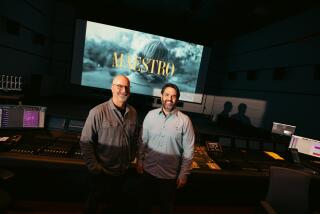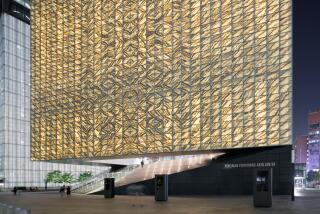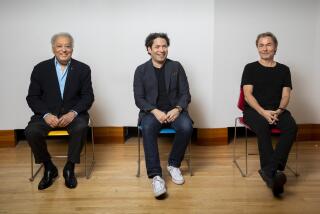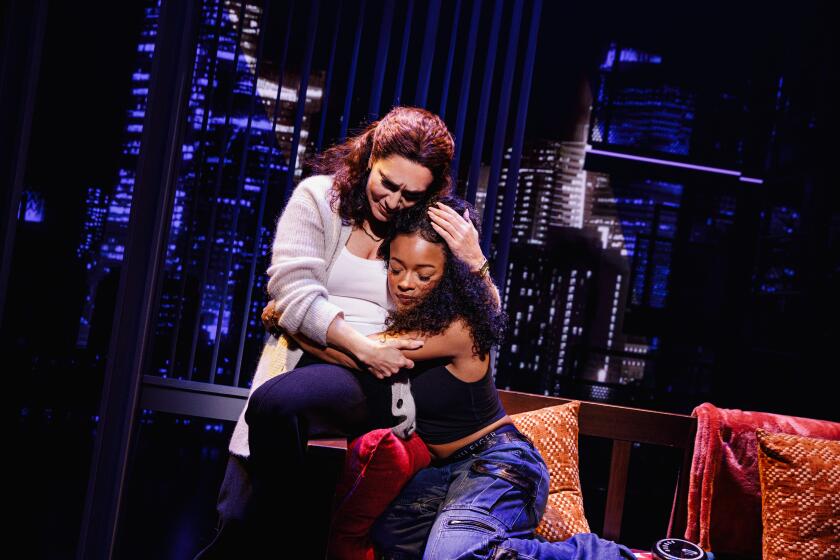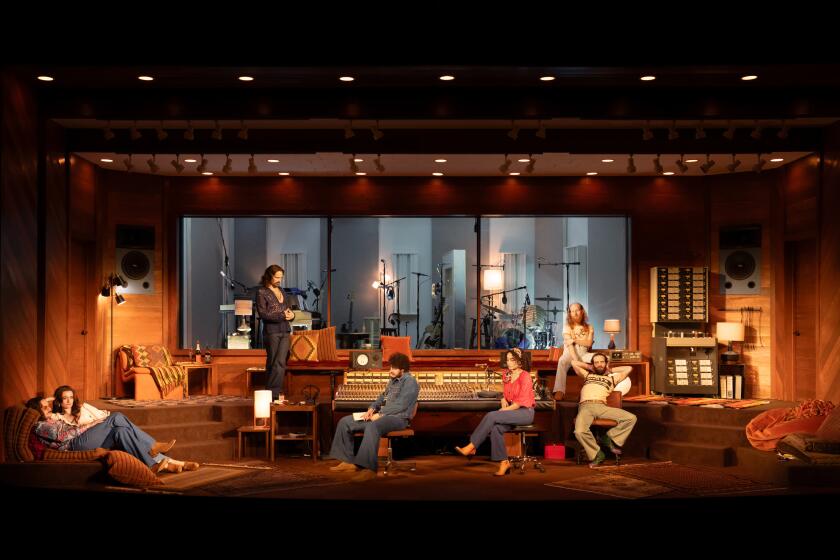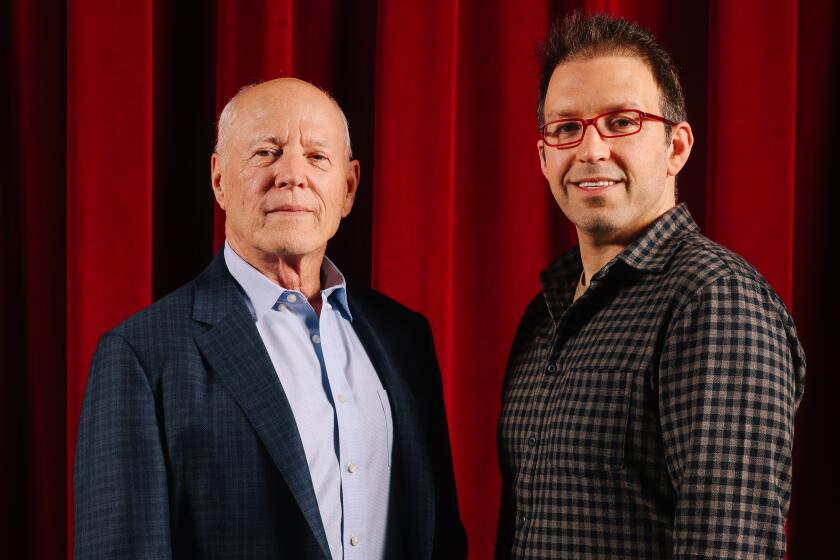Calder Quartet at Zipper Hall
The young Calder Quartet has arrived. For its program Friday night in the Zipper Concert Hall at the Colburn School, the box office was mobbed. A throng in hanging-from-the-rafters numbers so crowded a hapless box office that many did not get in in time for Mozart’s “Dissonant” Quartet.
Maybe it’s hard times. Tickets were but $10 for a world-class string quartet joined by a popular Los Angeles pianist, Gloria Cheng, performing a substantial program in an intimate hall with excellent acoustics. The Calder’s Zipper series is already the best musical deal in town, but Friday’s pot was further sweetened by free tickets handed out on a new Facebook site. If this keeps up, Colburn would do well to add Box Office 101 to its curriculum.
Along with the Mozart, the Calder played Bartók’s Fifth Quartet and, with Cheng, Thomas Adès’ Piano Quintet. And no one under 18 needed to be accompanied by a legal guardian. That was the condition for the Calder’s gig in New York three weeks earlier, when the string quartet was joined by party rocker Andrew W.K. in the Greenwich Village club Le Poisson Rouge. After that high-volume blowout, the Calder reportedly further blew its audience’s mind with something a number of the evening’s hipsters might not have known about -- silence. Sitting motionless, it performed John Cage’s “4’33” “ as a closing number.
The Calder is hardly the first classical foursome to venture into pop. The Kronos began forging the way 30 years ago, and several others have followed their lead. But typically when a string quartet crosses over to the other side, it doesn’t look back. The Calder, however, has remained comfortable inhabiting both worlds. Friday’s weighty program didn’t toss a single pop bone to the audience, not even an encore.
There were touches, though, of a new freedom in the group’s playing. In Mozart’s “Dissonant,” violinists Ben Jacobson and Andrew Bulbrook, violist Jonathan Moerschel and cellist Eric Byers threw amusing glances at one another as they answered phrases, almost as if they were making it up on the spot.
The “Dissonant” moniker comes from the chromatic opening, and Calder deliciously savored every discordant interval, finding rapt beauty in jarring disharmony. An earthquake in the Mojave Desert slightly rocked Zipper during Mozart’s rollicking Finale. The Calder was not the cause. It only felt that way.
Adès’ Piano Quintet was written in 2001 as a kind of companion piece to Schubert’s “Trout” Quintet, but Friday you could have fooled me that the British composer did intend it to convey an after- shock. Everything in this score is off-kilter. Rising gestures in the piano and strings jerk as though electric shocks were applied to Schubert’s flapping trout. The young English composer has become a Los Angeles Philharmonic favorite across the street from Zipper at Walt Disney Concert Hall. Last season, Adès joined members of the Philharmonic in an impressive performance of the quintet.
The Calder and Cheng were more impressive. The rhythms are nutty, yet they nailed them. Piano and strings together created a glamorous sonic glitter that hooked and shook the ear. It had never occurred to me, until this sensational performance, that “ear” is the first three letters of “earthquake.”
After Adès, Bartók’s rhythmic complexities may have sounded perhaps a tad simpler, but that was a very small tad. Exuding a palpable pleasure in making the difficult seem quotidian, the Calder perhaps smoothed out a few too many Bartókian rough edges. The players’ sleek, insinuating tone was as tight and stylish as their matching tight suits. But who could complain about such musical and mature playing?
I’ve written before that every time I hear the Calder, the ensemble seems to have reached a new level. That remains true, and now only the stars are the limit, as the Calder takes its place as one of America’s most satisfying -- and most enterprising -- quartets.
More to Read
The biggest entertainment stories
Get our big stories about Hollywood, film, television, music, arts, culture and more right in your inbox as soon as they publish.
You may occasionally receive promotional content from the Los Angeles Times.
